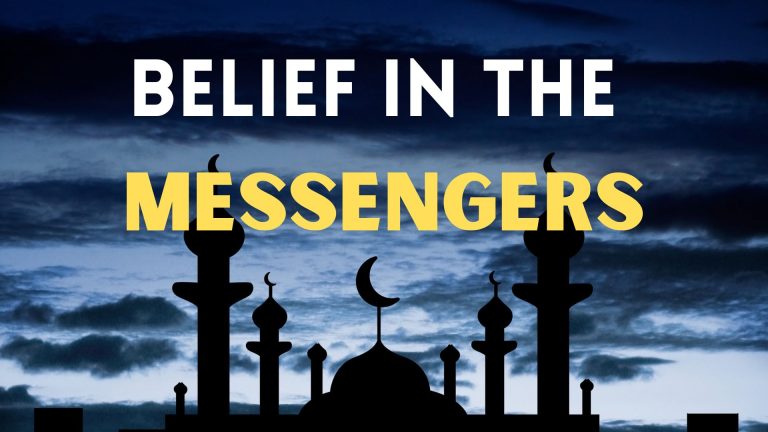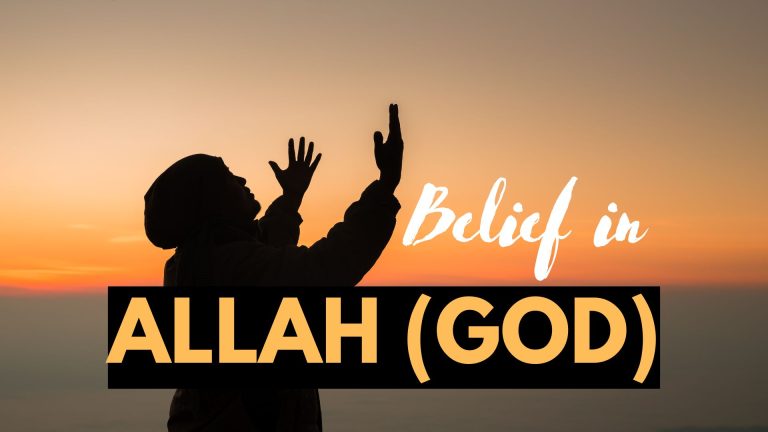Belief in The Holy Books of Allah
In Islam, belief in the Holy Books, also known as the Books of Allah, is a fundamental pillar of faith. Belief in the holy Books of Allah revolves around the divine scriptures sent by Allah to His messengers. The term “book” originates from the concept of something written or gathered, suggesting a compilation of unified data and information.
In Islamic terminology, “the book of Allah” refers to the scriptures revealed by Allah to guide and bless mankind, leading them to happiness in this world and the hereafter. Muslims believe these books contain essential knowledge and instructions for living a righteous and purposeful life.

The Belief in the Holy Books of Islam
In Islam, belief in the Holy Books, also known as the Books of Allah, is a cornerstone of faith. These scriptures are seen as a divine gift, offering guidance and blessings to humanity across generations. Here’s an overview of the four central Holy Books:
1. Torah (Taurat)
The Torah (Taurat) is a sacred book believed to have been revealed by Allah to the Prophet Moses. In the Quran, Allah mentions,
“After We had destroyed the earlier generations, We bestowed the Book on Moses, a source of enlightenment for people and a guidance and mercy, that they may take heed” (Al-Qasas/The Stories: 43).
The Torah was sent down in the form of writings on sheets. Allah says,
“And We ordained for Moses in the Tablets all manner of admonition, and instruction concerning all things” (Al-A’raf/The Height: 145).
Ibn Abbas explained that this refers to the sheets of the Torah.
According to a hadith narrated by Abu Huraira, Adam said to Moses, “You are the one whom Allah selected for His Message and whom He selected for Himself and upon whom He revealed the Taurat (Torah)” (Narrated by Al Bukhari no. 6240 and Muslim no. 13).
The Torah is considered the most prominent and highest book for the offspring of Israel, containing details of their laws revealed to Moses. The prophets upheld these laws among the offspring of Israel after him.
Allah says, “Surely We revealed the Torah, wherein there is Guidance and Light. Thereby did Prophets, who had submitted themselves (to Allah), judge for the Judaized folk, and so did the scholars and jurists. They judged by the Book of Allah for they had been entrusted to keep it and bear witness to it” (Al-Ma’ida/The Table Spread: 44).
One important lesson from this verse is that the Torah was entrusted to the jurists of the offspring of Israel, as indicated by the phrase “for they had been entrusted to keep it.” Unlike the Quran, this is one reason a man could change the Torah.
2. Psalm (Zabur)
The Psalms (Zabur) is a sacred book believed to have been revealed by Allah to the Prophet David. Allah says, “And We gave to David Psalms” (An-Nisa/The Women: 163).
Unlike the Torah, which contains detailed laws and legal provisions, the Book of Psalms consists of prayers, remembrances, praises to Allah, and other teachings Allah had imparted to David. It does not include specific laws about what is lawful or unlawful.
Imam Qatada explained verse 163 of Surah An-Nisa’ by stating,
“We, the pupils of the companions (tabi’in), said that the Psalms contained only prayers taught by Allah to David, praises, and glorifications of Allah the Exalted. It contained nothing about lawful matters, obligations, or laws. The laws and shari’a practiced during the time of David were those found in the Torah, so his laws were similar to those of Moses.”
The Psalms are unique in that they serve as a collection of spiritual and devotional expressions, providing believers with a means to connect with Allah through prayer and praise. They are a source of inspiration and guidance for those seeking solace, wisdom, and closeness to the Divine.

3. The Gospel (Injil)
The Gospel (Injil) is the sacred book believed to have been revealed by Allah to the Prophet Jesus. Allah mentions,
“And We sent Jesus, the son of Mary, after those Prophets, confirming the truth of whatever remained of the Torah. And We gave him the Gospel wherein are Guidance and Light, confirming the truth of whatever remained of the Torah, and a Guidance and Admonition for the God-fearing” (Al-Ma’ida/The Table Spread: 46).
The Gospel is considered a confirmation of the truth of the Torah, with its contents complementing and aligning with the teachings of the Torah. Scholars have explained that while the Gospel largely corresponds to the Torah content, some differences exist, particularly in law matters. Allah revealed about Jesus,
“…and to make lawful to you some of the things which had been forbidden to you” (Ali Imran/The Family of Imran: 50).
The Gospel is seen as a continuation of the divine guidance provided in the Torah, with Jesus’ teachings building upon the foundation laid by previous prophets. It serves as a source of guidance, light, and warning for those who fear Allah, providing spiritual and moral guidance for believers.
4. The Qur’an: The Final Revelation
Scholars define the Qur’an as Allah’s ultimate and final divine revelation. It is the literal word of God, conveyed through the Angel Gabriel to Prophet Muhammad (PBUH) in Arabic, intended for all humanity.
The Wisdom Behind Gradual Revelation
Faith in the Books of Allah

Result of Belief in the Holy Books
By believing in the books of Allah, one acknowledges the divine wisdom, guidance, and justice, leading to a deeper understanding of Allah’s care and provision for humanity.
FAQs
Are the books of Allah only for specific nations?
No, the books of Allah are universal, guiding all of humanity, regardless of nationality or background.
Are there any contradictions between the books of Allah?
No, there are no contradictions between the books of Allah. The Qur’an confirms the truth of the previous scriptures and completes the guidance within them.
Can we choose to follow only certain parts of the books of Allah?
As believers, we must follow the guidance of Allah’s books to the best of our ability, as they contain goodness, guidance, and justice.
How should we approach the books of Allah in our daily lives?
We should read, reflect upon, and apply the teachings of the books of Allah in our daily lives, seeking guidance and wisdom from them.
Conclusion
Belief in the holy Books of Allah is an essential aspect of the Islamic faith, emphasizing the divine guidance and wisdom in these scriptures. The Torah, Psalms, Gospel, and Qur’an are all considered sacred revelations from Allah, providing guidance and light for humanity.
By believing in these books, Muslims acknowledge Allah’s care and provision for His creation and His divine wisdom in guiding mankind. It is incumbent upon believers to study, understand, and implement the teachings of these books in their lives, seeking guidance and wisdom from them in all matters.





